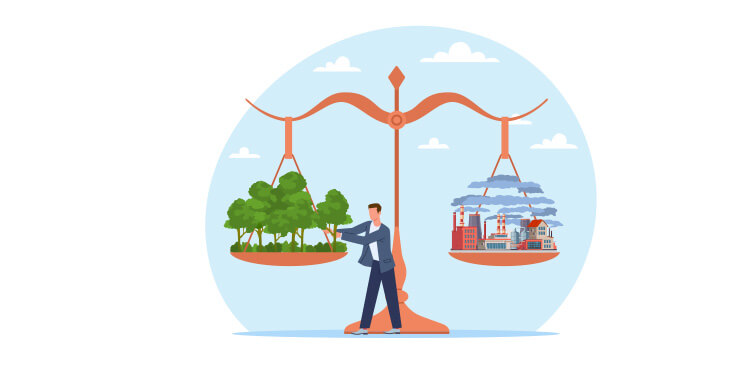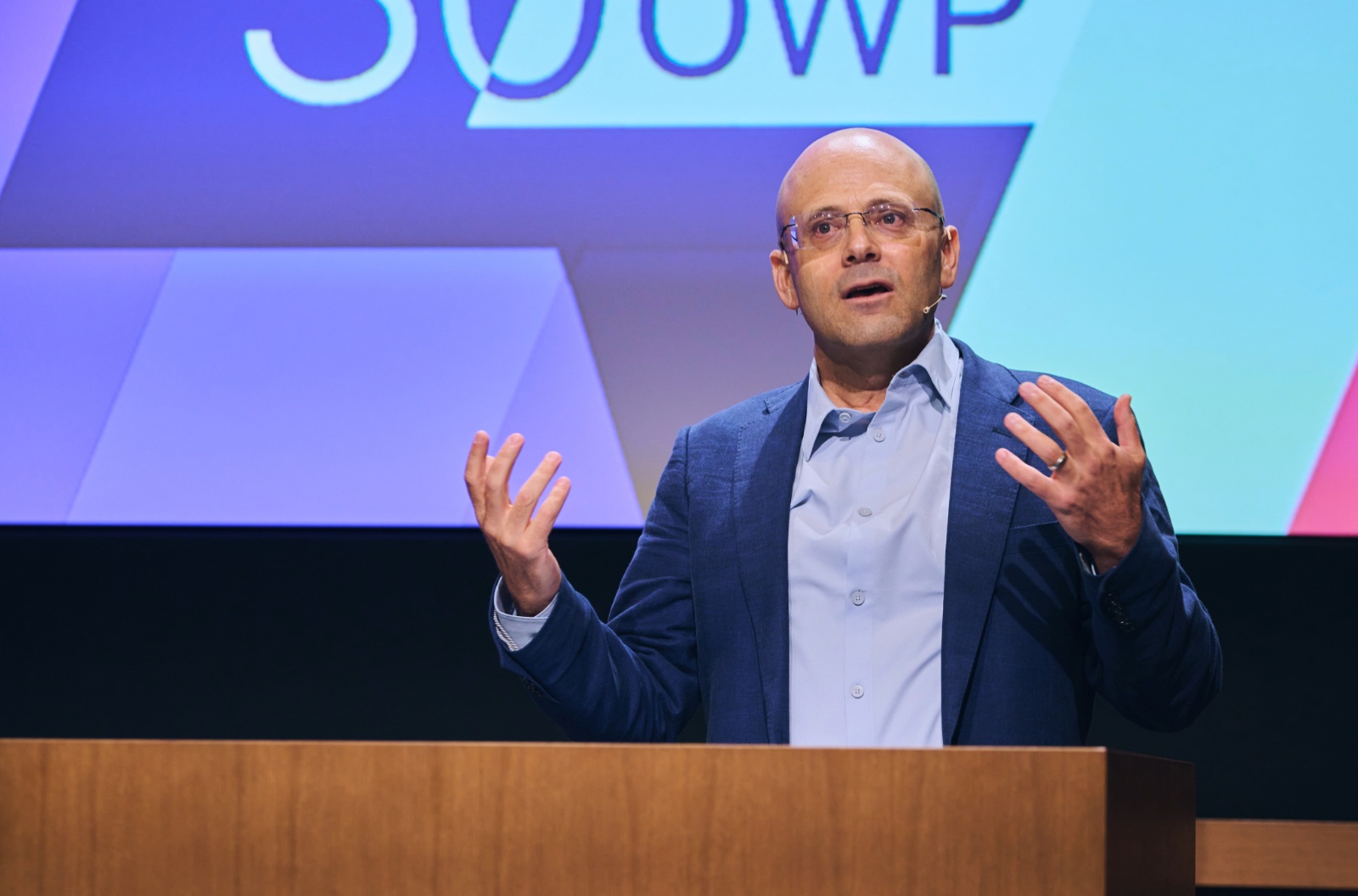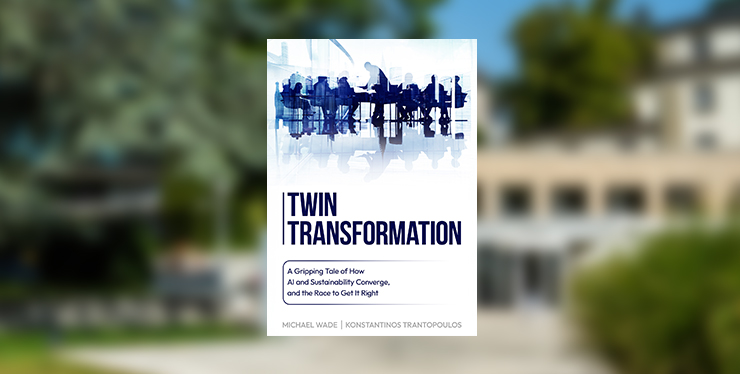
Environment risks threaten business as investors, consumers raise pressure
Businesses are waking up to the risks of a warming, polluted planet. Under increasing pressure from investors, customers, and NGOs, CEOs are realizing they will have to pay as much attention to climate change as to traditional business risks like political turbulence or competition.
Food and beverage companies are particularly in the spotlight for their contribution to growing plastic waste. Greenpeace activists disrupted Nestle’s Annual General Meeting this month saying Nestle’s single-use plastics are polluting landfills and oceans, driving home the point with a video showing a fictional “Nestle Chief Plastics Officer” sprayed with dead fish and slimy waste.
Climate change is even on the agenda of online retailers. In the largest employee-driven movement on climate change in the tech industry, this month more than 4,000 employees of online retail giant Amazon demanded the company make clear commitments to reduce its carbon footprint across its vast operations. They also insisted the company stop custom cloud computing services that help the oil and gas industry find and extract more fossil fuels.
Growing alarm over environmental issues has inspired an accelerating movement of global student protests, building pressure on both government and business leaders. Humanity has wiped out 60% of mammals, birds, fish and reptiles since 1970, WWF reported recently. Scientists say we are in the midst of the Sixth Mass extinction, the first to be caused by humans. The UN Intergovernmental Panel on Climate Change warned in October that the planet’s temperature increase will reach the crucial threshold of 1.5 degrees Celsius by as early as 2030, boosting the risk of extreme drought, wildfires, floods and food shortages for hundreds of millions of people. It urged governments and companies to act faster to address these threats.
Governments and business react
This increasing pressure is already reflected in changing legislation. The European Parliament last month approved a law banning a range of single-use plastic products by 2021. The UK government announced a tax on any plastic packaging with less than 30 percent recycled content, beginning in April 2022.
Business leaders are also working on comprehensive strategies to address environmental risks and impacts. Slick sustainability reports with broad commitments to lowering carbon footprints are no longer enough to appease stakeholders. Instead, it’s about moving from a linear ‘take-make-waste’ economy to a disruptive circular economy – using systems thinking to ensure responsible sourcing, manufacturing, distribution and recycling and reuse throughout the supply chain.
Investors reward environmental, social and corporate governance (ESG) performance
With greater transparency, investors can reward companies moving quickly to address these risks while holding others accountable. The Task Force on Climate Related Financial Disclosures, led by Michael Bloomberg, is developing voluntary, consistent climate-related risk disclosure standards to help companies report investors, lenders, insurers and other stakeholders. Interest in mutual funds that invest based on environmental, social and governance is booming. Assets under management in ESG funds have increased to $1.05 trillion at the end of 2018 from $655billion in 2012, according to Morningstar. Europe accounts for most of the ESG product launches and assets under management.
Businesses Commit to Change
An increasing number of companies and investors are acknowledging that business, with its increasingly complex global supply chains, has an important role to play to reduce risks and must partner to address their impacts on the environment.
Several recent examples provide hope:
- Norway’s $1 trillion government-owned investment fund announced it will take money earned from oil and gas investments and instead place as much as $14 billion in clean energy projects. The world’s largest sovereign wealth fund will divest of 134 companies that develop oil and gas.
- Maersk, the world’s biggest shipping company, recently committed to being carbon neutral by 2050 and encouraged other shipping companies and partners to innovate to do the same.
- The New Plastics Economy Global Commitment led by the Ellen MacArthur Foundation, established a vision to stop plastic waste and pollution at source by applying circular economy principles and has attracted more than 350 signatories. Moving towards greater transparency in plastics use, major companies including Carrefour, Coca-Cola, Colgate Palmolive, Mars, Nestle, SC Johnson and Unilever have publicly disclosed their annual plastic packaging volumes. U.S. grocery chain Trader Joe’s announced a commitment to cutting 1 million pounds of single-use plastics in its stores.
It’s clear ignoring environmental risks is no longer an option for business. The challenge is reacting fast enough with comprehensive changes to business models to keep in step with rapidly evolving environmental threats and stakeholder demands.
Natalia Olynec is Sustainability Partner and Researcher at IMD Business School.
Research Information & Knowledge Hub for additional information on IMD publications

In President Trump’s second term, a variety of executive actions have reversed social progress. Withdrawing from the Paris Climate Agreement presents a significant challenge to bending the global emissions curve since it is one of the world’s larg...
We systematically review business research concerning the planetary boundaries framework: A natural science framework that identifies nine Earth system boundaries that govern the safe operating space for humanity. Ten years after the introduction ...
Environmental claims are becoming increasingly common in corporate disclosures, but whether they correspond to genuine environmental action rather than greenwashing remains unclear. This paper explores the relationship between companies' environme...
Research Information & Knowledge Hub for additional information on IMD publications
in I by IMD
Research Information & Knowledge Hub for additional information on IMD publications
Research Information & Knowledge Hub for additional information on IMD publications
Research Information & Knowledge Hub for additional information on IMD publications
Research Information & Knowledge Hub for additional information on IMD publications
in Stanford Social Innovation Review Online 2 June 2025
Research Information & Knowledge Hub for additional information on IMD publications
in Journal of Management Studies June 2025, vol. 62, no.4, pp. 1811-1846, https://doi.org/10.1111/joms.13150
Research Information & Knowledge Hub for additional information on IMD publications
in I by IMD
Research Information & Knowledge Hub for additional information on IMD publications
in Sustainable Development 29 May 2025, ePub before print, https://doi.org/10.1002/sd.3544
Research Information & Knowledge Hub for additional information on IMD publications
Research Information & Knowledge Hub for additional information on IMD publications








